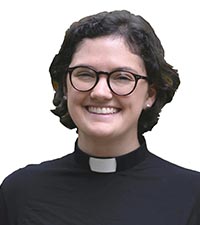When I lived in Atlanta during seminary, my congressperson was recently deceased civil rights hero John Lewis.
The story of Lewis’s life is a story of courage and fortitude in the face of ongoing systemic oppression. If you don’t know much about him, I encourage you to read about the remarkable achievements of this man who many called the “conscience of the Congress.”
In an essay Lewis wrote recently for publication on the day of his death, he encouraged readers to continue in the work of dismantling systemic injustice that he and his colleagues engaged in during the 1960s. He wrote,
“When historians pick up their pens to write the story of the 21st century, let them say that it was your generation who laid down the heavy burdens of hate at last and that peace finally triumphed over violence, aggression, and war.”
If that’s not a call to action, I’m not sure what is!
Language of evil
John Lewis’s call to my generation is one that evokes for me the language of evil throughout the New Testament.
-
- Paul refers to “principalities and powers” when he reminds us that nothing can separate us from God’s love (Romans 8: 38-39).
- The writer of Ephesians refers to “rulers” and “authorities” and “cosmic powers” against which the Christian community must resist (Ephesians 6:11-17).
- The writer of Colossians refers to “rulers and authorities” in describing Jesus’s triumph over evil.
These images of power and evil pervade the New Testament as scripture writers point to a reality with which we are well acquainted these days: Evil and sin are often made manifest in systems of power.
A complex system of sin
This kind of sin is much harder to identify and talk about than the kinds of individual sin named in, for instance, the Ten Commandments. It is easier to name murder as sin than the complex systems in our world that keep poor people poor and marginalized communities marginalized.
But the evil that these systems perpetuate is very, very real.
I am indebted (again) to my colleague Keith Dove for introducing me to a book by his divinity school professor, Chuck Campbell, who first helped me to put words to this reality of systemic forms of evil and sin and our call to name them aloud before God and one another.
The book is for preachers, but I find myself wishing he would write a version that churches like ours could use as a Bible study! Because as our FPC community continues to learn more about racism and our implication in injustice, we will do well to keep our journey grounded in the biblical witness and our own Presbyterian theological heritage.
Because God calls us
We do not engage in the work of dismantling systemic injustice simply because it seems like a good thing to do; we do this work because God calls us to it. We follow in Jesus’s footsteps, trusting that if the God-made-flesh spent his life communing with the marginalized people of his society, turning over tables of injustice and preaching a gospel of radical inclusion, we ought to do the same.
We are bolstered by the words of our Presbyterian confessions, which remind us that “the church as the possession of God must stand where the Lord stands, namely against injustice and with the wronged” (Confession of Belhar) and that the Spirit gives us courage, even in a broken and fearful world, “to work with others for justice, freedom, and peace” (A Brief Statement of Faith).
In these days following the death of Congressman John Lewis, I continue to give thanks for leaders like him who vulnerably committed themselves to the pursuit of justice and inclusion. I pray that the Spirit will reveal in each of us a desire to work for the flourishing of all humanity, however that might look in our own neighborhoods and communities.
And when we are weary, I pray that we be fed by Christ, who offers himself as bread for the world.
https://www.nytimes.com/2020/07/30/opinion/john-lewis-civil-rights-america.html
https://www.wjkbooks.com/Products/0664222331/the-word-before-the-powers.aspx
https://sites.google.com/view/racialequalityresourceguide/home

